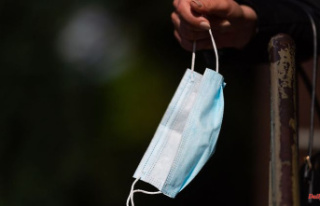When Putin turned off the gas tap for Germany last year, the topic of saving energy became particularly urgent. The city administrations also brought themselves on course in this regard. What happened to your plan to use significantly less gas?
Cologne (dpa / lnw) - When it comes to saving energy, the cities of North Rhine-Westphalia say they have made good progress, but they have not achieved a nationwide target. A lot of energy has been saved and "a considerable contribution" has been made to overcoming the energy crisis, said Helmut Dedy, Managing Director of the NRW City Council. A federal ordinance has been in force since September, under which, for example, the temperature in administration offices and swimming pools had to be reduced. Street lighting was in operation for less time than it used to be, and historical buildings were no longer illuminated. Cologne consumed 19 percent less gas in municipal buildings in the fourth quarter of last year, Münster estimates the reduction at 16 percent this winter.
The federal cabinet passed the ordinance in the summer out of concern about possible energy bottlenecks as a result of a lack of Russian gas supplies. The rules, which are initially limited to the end of February, are to be extended until April 15 if the Federal Council agrees on February 10.
Nationwide, 20 percent of energy should be saved - according to previous figures, the city administrations should not be able to do that. However, the 20 percent target does not just apply to municipalities, but to everyone, including industry and private consumers.
According to the Federal Network Agency, total gas consumption in Germany in the fourth quarter was around 22 percent lower than in the previous four years - so the target has been achieved so far, as industry and private consumers have saved more than the municipalities.
A Bielefeld city spokeswoman points out that the savings ordinance can only "be applied in relatively few municipal buildings". Schools and day-care centers are excluded. However, since they make up a large part of the city's building stock, it is "difficult to quantify" whether the 20 percent target can be achieved. All in all, Bielefeld estimates the energy savings in self-managed municipal real estate at 10 percent.
In Bonn, the water temperatures in three indoor swimming pools were lowered by one degree in the teaching pool and by two to three degrees in the multi-purpose and sports pools. Including other measures, the former federal capital expects savings of 15 percent.
According to the city, in Düsseldorf it was possible to reduce gas consumption in sewage treatment plants by up to 40 percent in so-called partial load operation. It was also possible to reduce power consumption in this area. Sewage sludge drying is only operated on four days a week. Another example of energy-saving measures are the gas lanterns, which are widespread in the state capital and are switched off for four hours at night.












